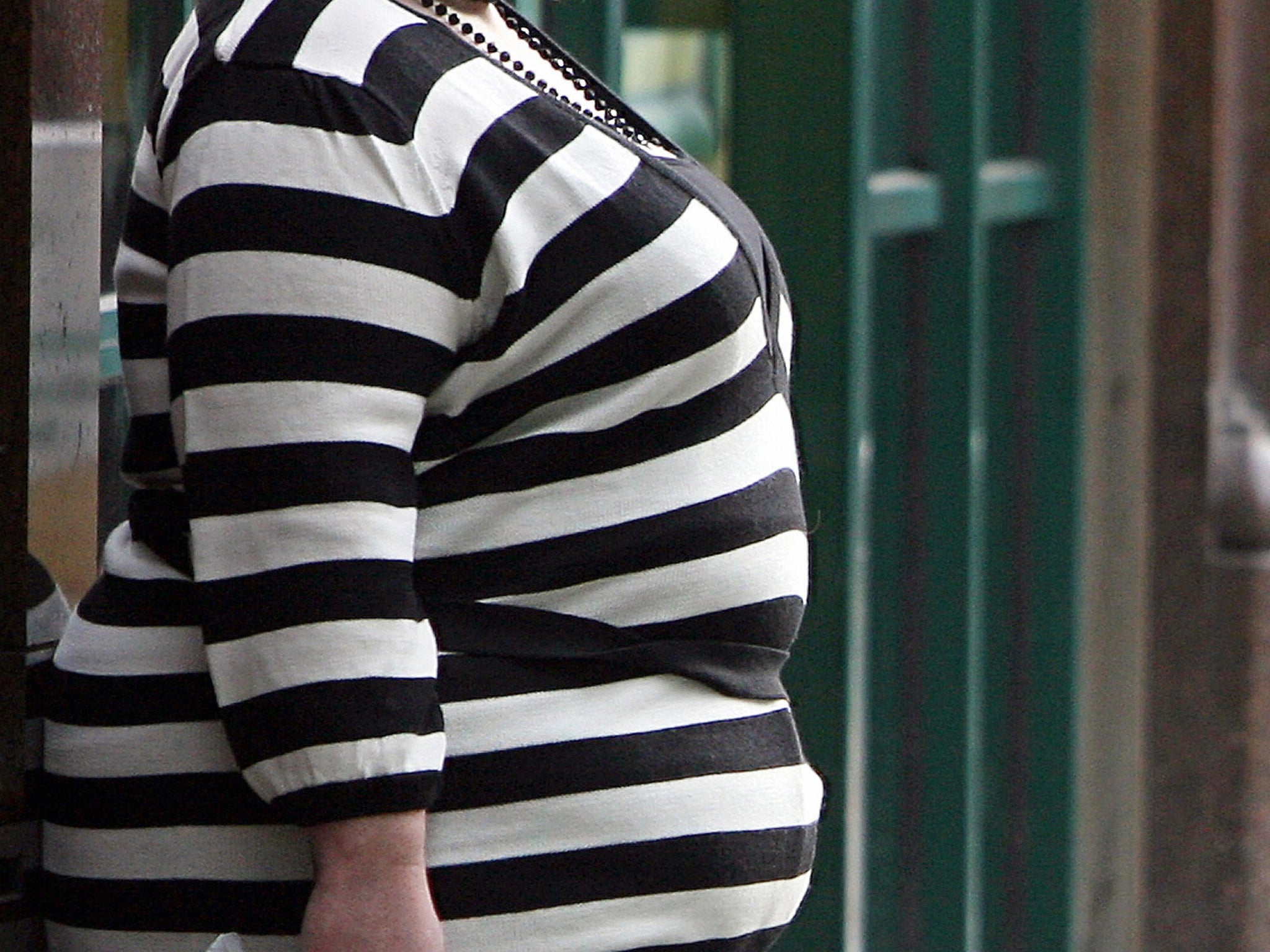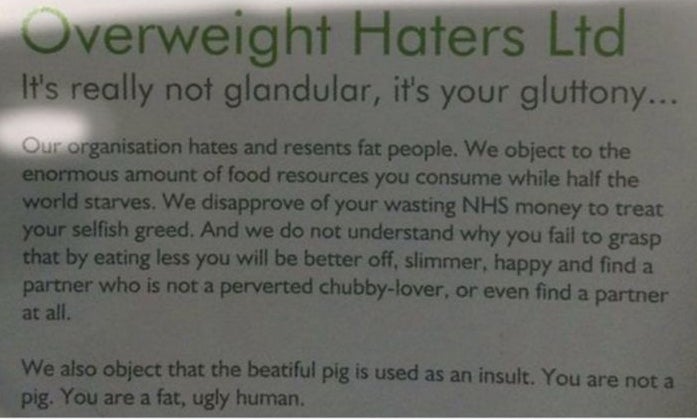Fat shaming: Telling it straight isn’t abuse, it’s noble
Life’s too short not to tell someone they are a buffoon


Your support helps us to tell the story
From reproductive rights to climate change to Big Tech, The Independent is on the ground when the story is developing. Whether it's investigating the financials of Elon Musk's pro-Trump PAC or producing our latest documentary, 'The A Word', which shines a light on the American women fighting for reproductive rights, we know how important it is to parse out the facts from the messaging.
At such a critical moment in US history, we need reporters on the ground. Your donation allows us to keep sending journalists to speak to both sides of the story.
The Independent is trusted by Americans across the entire political spectrum. And unlike many other quality news outlets, we choose not to lock Americans out of our reporting and analysis with paywalls. We believe quality journalism should be available to everyone, paid for by those who can afford it.
Your support makes all the difference.Grant, you are fat. Four words that left me humiliated and not a little depressed. But when I stopped feeling sorry for myself, I realised my wife’s honesty was the dose of reality I needed to lose a couple of stone.
That’s entirely different from being approached on the Tube by a self-righteous, busybody stranger and being handed a fat-shaming postcard, saying “It’s really not glandular, it’s your gluttony”. But the hurtful bullies who call themselves “Overweight Haters Ltd” do have a point. Why shouldn’t we be more honest with each other?
The Tube “haters” have mistaken being odious for being honest. But there is something to be said for the directness of their approach, especially when it comes to people unaware of their personal traits.
Haven’t you ever wanted to tell that colleague about their bad breath, or appalling body odour? Not to embarrass but to help them. We castigate people for poor work, swear at their terrible driving and shout grievances down the phone to customer services. Yet we’re too frightened of telling people that, much as we might like them, they’re letting themselves down.
Making fun of someone is abhorrent, but telling them the truth is a noble gesture. If it’s acceptable to tell a 60-a-day cigarette addict that their filthy habit will kill them, why can’t we raise a concerned eyebrow to a clearly overweight colleague grabbing a fourth mince pie?

I once lost a job because the boss didn’t know what he was doing. We all knew it but I was the one who couldn’t bite my tongue any longer. Do I regret it? Not for a moment – life’s too short not to tell someone they’re a buffoon. Speaking your mind is incredibly cathartic. Lucrative, too. I’m now paid to give my honest opinion to executives hamstrung by teams of sycophants who fear causing an upset.
We’re encouraged to wear our hearts on our sleeves, yet discouraged from being honest with each other lest we give offence. Surely it’s more offensive – indeed crueller – to hide what we think about someone, to pretend their faults don’t exist, to allow ourselves to be intimidated by the truth.
It’s why I frequently bow to the wisdom of Larry David, who once said: “I don’t like talking to people I know, but strangers I have no problem with.” Because with strangers he can break with convention and allow his sincere outspokenness free rein. The funniest episodes of his joyously offensive sitcom Curb Your Enthusiasm usually contain the line, “Hey let me ask you something.” He wants to know what it’s really like to be blind, fat, black or a Jew-hating Palestinian sex addict.
The anonymous fat-shamers are no Larry Davids – and anyway, there’s nothing wrong with being a little overweight. But I’m worried we’re living in a society where the phrase “I don’t mean to be rude but…” is tantamount to abuse. Sometimes honesty really is the best policy.
Grant Feller is editor at large of 'The Jewish Chronicle'
Join our commenting forum
Join thought-provoking conversations, follow other Independent readers and see their replies
0Comments